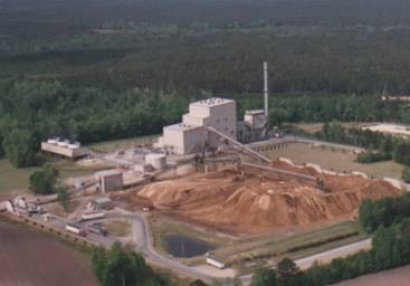
Craven County Wood Energy is a 50 MW wood biomass power facility located in Craven County, North Carolina. The plant generates clean energy by processing more than 500,000 tons of biomass waste per year from a variety of sources such as sawmills, pulp and paper mills, logging operations, pounltry waste, landfills and railroad ties. The plant also provides an economical outlet for the safe disposal of local forestry industry waste.
Throughout its 25 years of operation, the facility has been upgraded to use more poultry waste – going from 10 percent to 25 percent currently. It has plans to go as high as 30 percent.
“The increased usage of poultry waste will help Duke Energy better meet state mandates for renewable energy and makes the facility more valuable to the company and its customers,” said Gary Freeman, general manager of Duke Energy’s renewable energy compliance.
Duke Energy will buy 100 percent of the energy and associated renewable energy certificates from the facility. A REC is a commodity equal to 1 MWh of renewable generation.
Under North Carolina’s Renewable Energy and Energy Efficiency Portfolio Standard, Duke Energy must eventually meet 0.21 percent of its overall power sales with energy generated by swine and poultry waste. North Carolina is the only state with a renewable energy carveout for swine and poultry waste.
The poultry waste requirement is set to increase over the next two years, and the CCWE contract will provide Duke Energy with valuable RECs to meet the increased compliance requirements.
“We are pleased that we will continue to provide renewable, reliable energy that meets the needs of homes and businesses in our region – while also continuing to support not only our employees but 150 other families who supply us with goods and materials,” said Robert Van Ells, CCWE’s plant manager.
CCWE has about 50 employees and also supports jobs in logging, trucking, welding, parts supply industries and many other local merchants in the area. Its use of waste wood lessens the amount of materials going to local landfills. It is an important economic contributor to the region.
“Craven County is excited about our continued, long-term relationship with Craven County Wood Energy. From employment, both direct and indirect, to alternative energy production, CCWE plays a vital role in the economic development of our community,” said Timothy Downs, director of economic development for Craven County.

